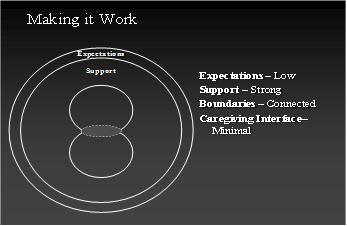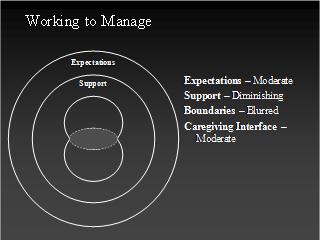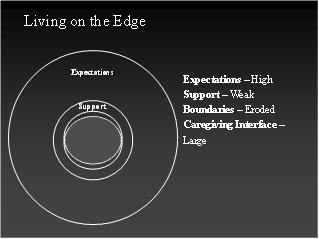
| DDC PROTOTYPICAL EXPERIENCES |
Findings from Study 1 (see Double-Duty Caregiving: Women in the Health Professions, 2005) suggest that there are three distinct, yet interconnected types of double duty caregiving experiences: Making it Work
The expectations tend to be low for these caregivers, partly because the care needs of the elderly relatives are not excessive. Requests for assistance are usually periodic, fall within the DDC’s domain of professional practice and require a small amount of time. DDCs who are experiencing ‘making it work’ are generally able to contain growing expectations and solicit any needed assistance, which usually results in a minimal blurring of boundaries. Working to Manage
The expectations tend to be moderately demanding, and for some gradually increase over time. Often these DDCs need to acquire more health information outside their area of expertise. In addition, families and other health care providers often expect them to assume more and more care and strategies for limiting care may not as effective. Living on the Edge
The level of familial expectations to provide complex, daily care can be exceedingly high. If family and workplace supports were previously present, they have weakened considerably. In addition to caring for their elderly relative, many DDCs provide emotional and instrumental support to other family members who lack health professional skills and knowledge. Boundaries between personal and professional caregiving become almost completely eroded. Many DDCs experience exhaustion and loss of self while they are ‘living on the edge’. |
This page was last updated on March 22, 2011


